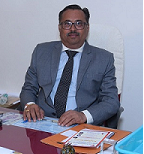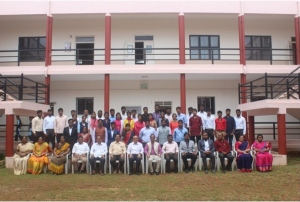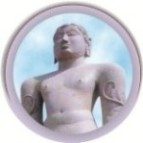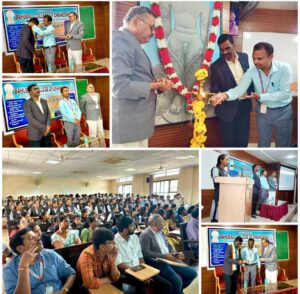
Department of Mechanical Engineering
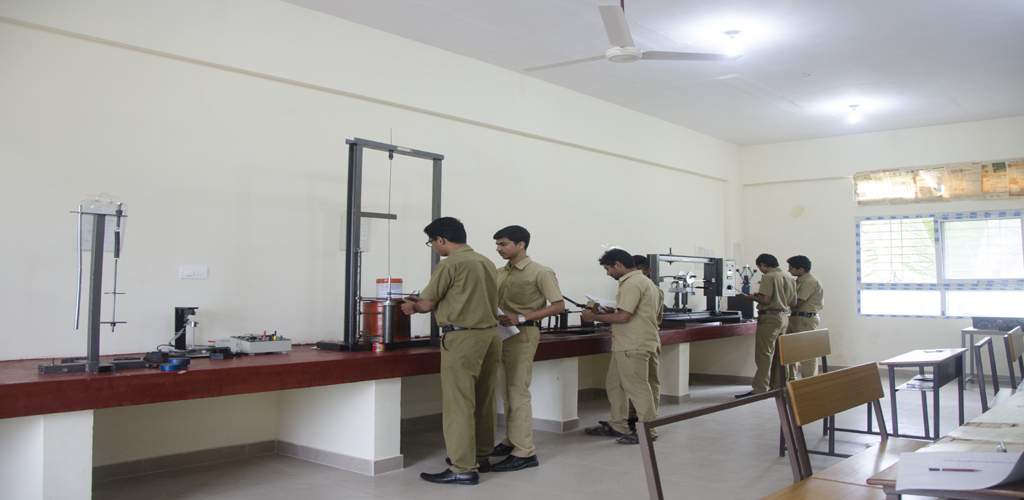
About
The department started the UG program B.E in Mechanical Engineering in the year 1997 with affiliation to Mysore University. The present intake is 30 and affiliated to VTU, Belgavi. The department also started M.Tech program in Master of Engineering Management under VTU in the year 2012 with intake of 24. Currently the department has got total faculty strength of 12 which includes 2 Professors and 10 Assistant Professors. Most of the faculty members have got rich academic background and imparting high quality education.Department encourages students to participate various extracurricular activities. Every year students and faculty attend national and international conferences to present their papers and publish their work in various national and international journals. The student teams have participated in several National competitions and won numerous prizes. Mechanical Engineering lay emphasis on Design, Materials, Manufacturing, Thermal Engineering, and interdisciplinary areas like CAD/CAM/CAE, Automation, Engineering management etc. Department regularly organizes conferences, seminars, workshops, industrial visits, soft and technical training, recruitment drives to the students. The department has well equipped mechanical labs, workshop, machine shop, Library, systems and related other infra structure to be used by the students and faculty.3
Vision
The Mechanical Engineering Department strives to educate, inspire and mentor the students to excel as professionals and dedicate themselves for the individual and societal upliftment.
Mission
- To impart quality education to the students and enhancing their professional skills to make them competitive.
- To provide a strong ethical background and positive work culture in students and faculty.
- To develop linkage with industries, R&D organization and premier educational institutions.
- PEO1: To develop technically competent graduates who can contribute to the development of society in the field of Mechanical Engineering.
- PEO2: To make the students familiar with the latest technologies through Continuous learning and upskilling.
- PEO3: To make the students as good members with strong ethical background and leadership qualities.
- PO1.Engineering knowledge: Apply the knowledge of mathematics, science, engineering fundamentals, and an engineering specialization to the solution of complex engineering problems.
- PO2.Problem analysis: Identify, formulate, research literature, and analyze complex engineering problems reaching substantiated conclusions using first principles of mathematics, natural sciences, and engineering sciences.
- PO3.Design/development of solutions: Design solutions for complex engineering problems and design system components or processes that meet the specified needs with appropriate consideration for the public health and safety, and the cultural, societal, and environmental considerations.
- PO4.Conduct investigations of complex problems: Use research-based knowledge and research methods including design of experiments, analysis and interpretation of data, and synthesis of the information to provide valid conclusions.
- PO5.Modern tool usage: Create, select, and apply appropriate techniques, resources, and modern engineering and IT tools including prediction and modeling to complex engineering activities with an understanding of the limitations.
- PO6.The engineer and society: Apply reasoning informed by the contextual knowledge to assess societal, health, safety, legal and cultural issues and the consequent responsibilities relevant to the professional engineering practice.
- PO7.Environment and sustainability: Understand the impact of the professional engineering solutions in societal and environmental contexts, and demonstrate the knowledge of, and need for sustainable development.
- PO8.Ethics: Apply ethical principles and commit to professional ethics and responsibilities and norms of the engineering practice.
- PO9.Individual and team work: Function effectively as an individual, and as a member or leader in diverse teams, and in multidisciplinary settings.
- PO10.Communication: Communicate effectively on complex engineering activities with the engineering community and with society at large, such as, being able to comprehend and write effective reports and design documentation, make effective presentations, and give and receive clear instructions.
- PO11.Project management and finance: Demonstrate knowledge and understanding of the engineering and management principles and apply these to one’s own work, as a member and leader in a team, to manage projects and in multidisciplinary environments.
- PO12.Life-long learning: Recognize the need for, and have the preparation and ability to engage in independent and life-long learning in the broadest context of technological change.

